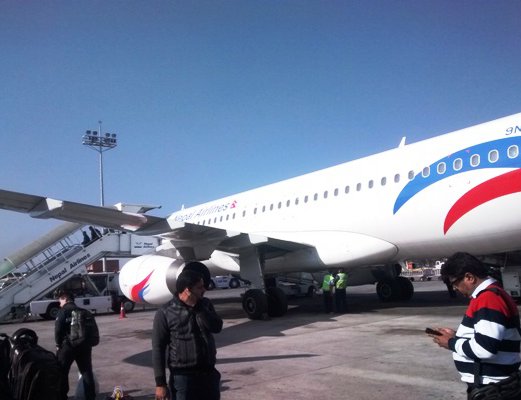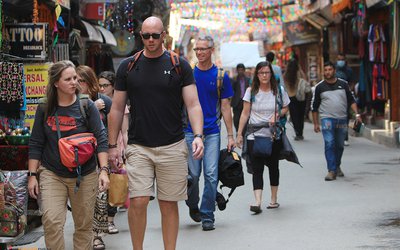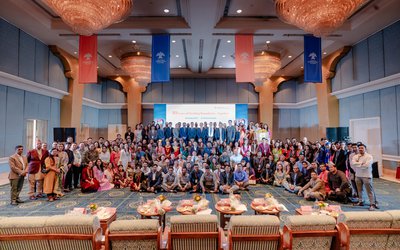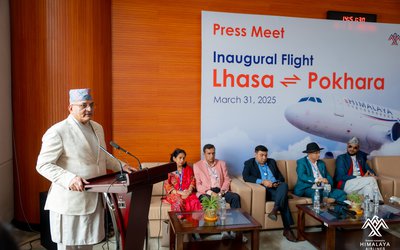
At a time when Nepalese tourism sector has been passing through a serious crisis following the earthquake and terai blockade, Nepal Tourism Board has appointed Deepak Raj Joshi, a man with a long experienceof working in the board, as its CEO.
CEO Joshi, with his experience of international marketing for Nepal, is the right choice for the present time as the board is virtually empty following the CIAA’s decision to file a case against all senior officers.
As Nepal's tourism Industry is suffering from difficult times, the newly appointed CEO of Nepal Tourism Board has said that domestic tourism promotion will get priority in 2016.
“As the confidence of tourism sector has remained very low after the earthquake, my first challenge is to boost their confidence for which I will be working closely with the private sector, which is the backbone of our industry,” said Joshi in his first interview.
As the number of tourist arrivals has come to a standstill, the revival of Nepal’s tourism industry as per the 2014 level will be a great achievement.
“The year 2016 is not only about revival of the industry but also about survival. We need to go for some aggressive marketing and promotion in some major markets. For 2017, I will be focusing on revival of the industry to the earlier benchmark of 800,000 tourists annually. Similarly, reinvigoration for transforming financial and service operations in 2018, and building back better in 2019 will be my main priority,” said CEO Joshi presenting his strategy.
With an eye on the global market, new CEO Joshi is also targeting major markets like Russia. According to global tourism market, around 30 million Russians travel to Turkey annually.
Nepal also needs to revive its market like Australia, New Zealand, South Korea and Japan where we need to target tactically, besides India and China, where outbound tourists are growing.
As tourism bookings for spring 2016 are very low compared to 2015, NTB’s aggressive marketing can make a difference. As a person working in the NTB’s marketing for quite a long time, Joshi knows the gap and strength.
“We can come close to meeting the earlier benchmark if things are not disturbed like the current situation, supply system is smooth, and political disturbances are less. We have to launch aggressive marketing campaign in China, India and South East Asian countries like Myanmar, Vietnam and Indonesia. The recent decision to waive visa fee for Chinese tourists will help a lot in faster recovery of tourism,” said Joshi.
At a time when the social media are emerging as effective tools to promote tourism, newly appointed CEO Joshi is also looking to mobilize it.
“We will also mobilize both traditional media and social media -- the cost effective medium -- for the promotion of Nepal's tourism across the globe. We will be making a very strong and efficient team for IT and social media mobilization,” said Joshi.
Along with social vulnerability, there is also a greater risk for natural disasters. There is a high hope for revival if the things go in the right directions. Young and dynamic CEO like Joshi can make a lot of difference to bring back Nepal’s tourism sector to the right track. In leading the NTB at this crucial juncture, newly appointed CEO Joshi has challenges and opportunities as well.
- MELAMCHI WATER SUPPLY: No Interruption During Monsoon
- Jun 25, 2025
- KOREAN RETURNEES: Successful Integration
- Jun 25, 2025
- UPPER TRISHULI-1: Engaging With Local
- Jun 25, 2025
- IME GROUP: Twenty Five Years Of Journey
- Jun 24, 2025
- NEPAL’S AIR POLLUTION: A Growing Health Concern
- Jun 24, 2025















